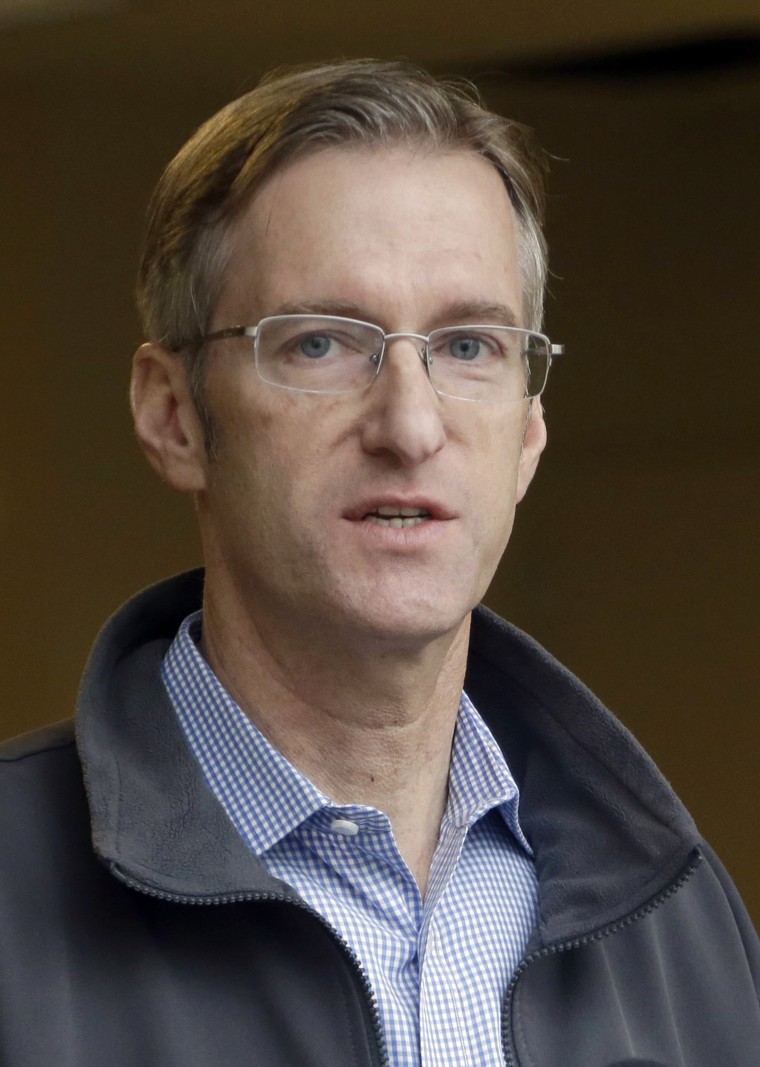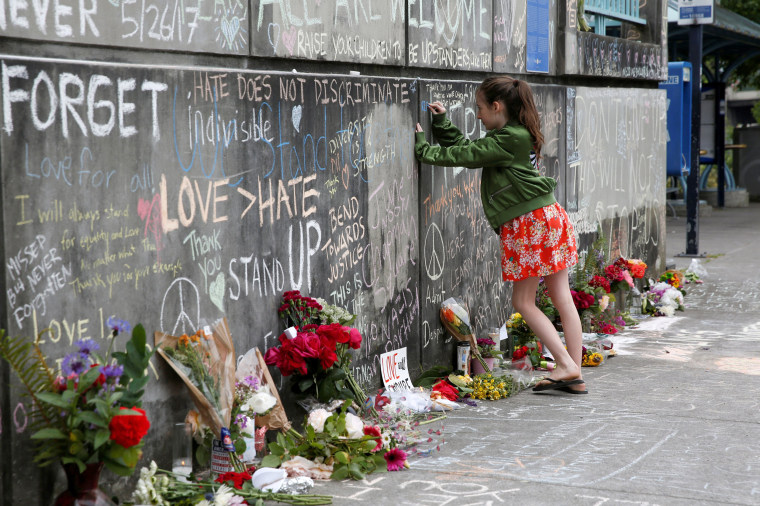Less than two weeks after Jeremy Christian allegedly killed two men trying to shield a pair of women from his anti-Muslim insults on a Portland metro train, the alt-right group he identifies with is staging a parade not far from the killing.
Portland Mayor Ted Wheeler is pushing to stop the parades citing that “hate speech is not protected” under the First Amendment. But legal experts beg to differ, saying the group has every right to demonstrate and the Constitution will back them up.
“In this country, we protect all speech no matter how ugly it may be,” said Susan Bloch, a constitutional law professor at Georgetown University Law Center.
“The Constitution tolerates hate speech,” she said. “And the way to protect speech is by protecting the speaker and controlling the crowd that doesn’t like it,” she said.
While there are a few exceptions, like specifically targeted threats, in general, all speech falls under the purview of the First Amendment, she said.
And it is the job of the government to uphold that right, she said.
The American Civil Liberties Union of Oregon blasted Wheeler for his call to cancel the rallies.
The ACLU has taken a hardline stance that the alt-right groups have every right to march, regardless of how unpopular the message may be.

"It may be tempting to shut down speech we disagree with, but once we allow the government to decide what we can say, see, or hear, or who we can gather with, history shows us that the most marginalized will be disproportionately censored and punished for unpopular speech," said the organization in a statement immediately following Wheeler's call to block the parades.
“The mayor is not just anyone on the street, he’s a government official who has to uphold the Constitution,” said Mathew dos Santos, legal director for the American Civil Liberties Union of Oregon. “And he’s not doing that,” he said.
"Portland has a proud history of protest. I am a firm supporter of the First Amendment, no matter the views expressed. I believe we had a case to make about the threats to public safety posed by this rally at this place and at this time. My job is to protect the safety of everyone... protesters, counter-protesters, and bystanders alike," said Wheeler in a statement in response to the criticism.
Alt-right groups have scheduled a "Trump Free Speech Rally," on June 4. A "March against Sharia" event was scheduled for June 10 but organizers decided to cancel the rally in Portland and move it to Seattle instead.
Organizers felt the city was no longer safe for them.
"Due to Mayor Wheeler's inflammatory comments and what we feel is an incitement of violence, he has shamefully endangered every scheduled participant. Consequently, in order to ensure the safety of those who had planned on attending, we have taken the decision to cancel the Portland March Against Sharia," wrote the organization planning the march in a Facebook post.
June 4th parade organizer Joey Gibson said the mayor “needs to sit down and take a minute and listen,” and feels that he is trying to “pin” Jeremy Christian on his movement.
Christian, who was arraigned on murder charges on Tuesday, has attended rallies organized by the group, Patriot Prayer, and screamed "free speech or die” and "this is America, get out if you don't like free speech,” during his court appearance.
The City of Portland has already rejected permits to parade by the controversial group citing that the “city is in mourning, our community’s anger is real, and the timing and subject of these events can only exacerbate an already difficult situation.” Adding that the group organizing the events are "coming to peddle a message of hatred and bigotry."
Wheeler also urged the federal government to follow in his footsteps and revoke federal permits issued to the group.
But the U.S. General Services Administration, charged with issuing permits, announced on Wednesday that it would allow the parades.
"All rules and regulations were followed by the applicant for the permit, including the timeframe for review. Since the permit was lawfully obtained to assemble at this federal location, GSA has no basis to revoke the permit," the agency said in a statement.
Revoking permits amounts to government suppression of speech, which has always been illegal, dosSantossaid. You cannot withhold permits based on people’s viewpoints, he said.
The case is a mirror image of another First Amendment battle out near Chicago 40 years ago.
In 1977, a neo-Nazi organization chose to stage their parade in the suburban Chicago town of Skokie, which at the time was home to thousands of Holocaust survivors.
Parade goers were slated to wear Nazi uniforms and emulate salutes and anti-Jewish chants from Nazi Germany.
Outraged community members tried to put a stop to the parade by using the same arguments set forth by Wheeler. The group said the parade promotes hate speech that would inflict emotional distress upon survivors of the Holocaust.

Ultimately the Nazi group, represented by the ACLU, won at the Supreme Court level and was legally allowed to march under the first amendment. The group ended up holding a rally downtown instead.
“Part of the problem with hate speech is that it’s in the eye of the beholder,” said Geoffrey Stone, a professor at the University of Chicago Law School. “There is no neutral way to decide what hate speech is and courts will not even attempt it,” he said.
The alt-right group has not made any indication that they are planning to incite imminent danger or violence during the parade, which may be questionable under the law, he said. “The idea that you can ban speech because it's offensive or may cause anxiety is not consistent with the first amendment.”
Thus far, the alt-right group has not brought suit against the city for revoking their permits, but if the situation does arise, it’s an open and shut case, Stone said.
“It’s inconceivable to me that a court would uphold the mayor’s argument,” he said. “This is long standing, well-settled law, and the mayor has it completely wrong," he said.
